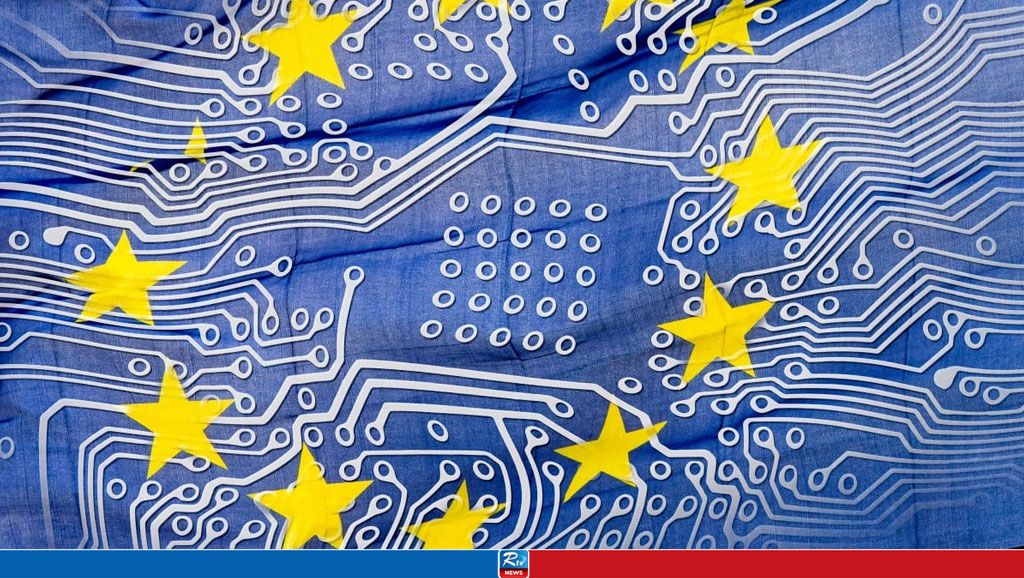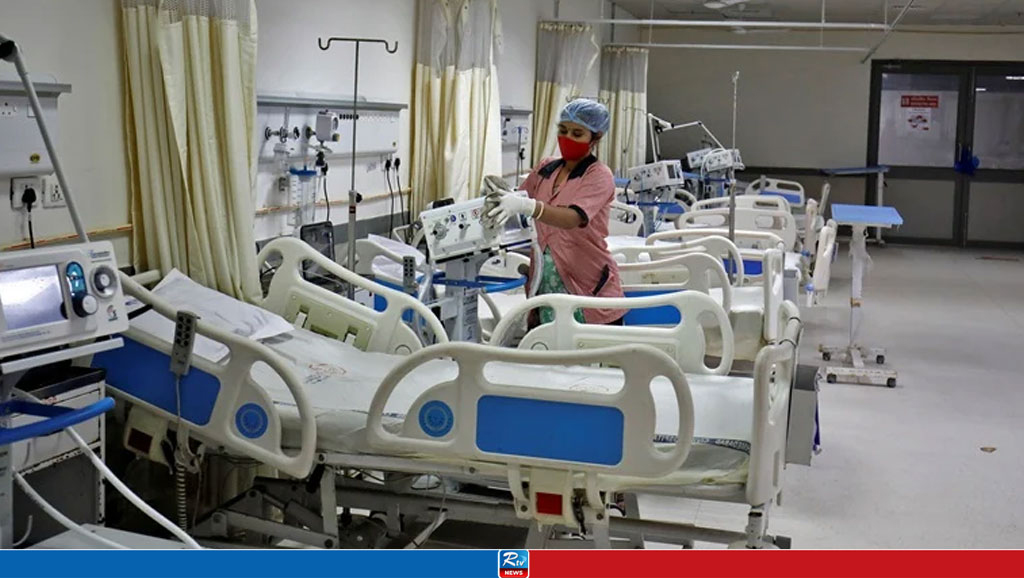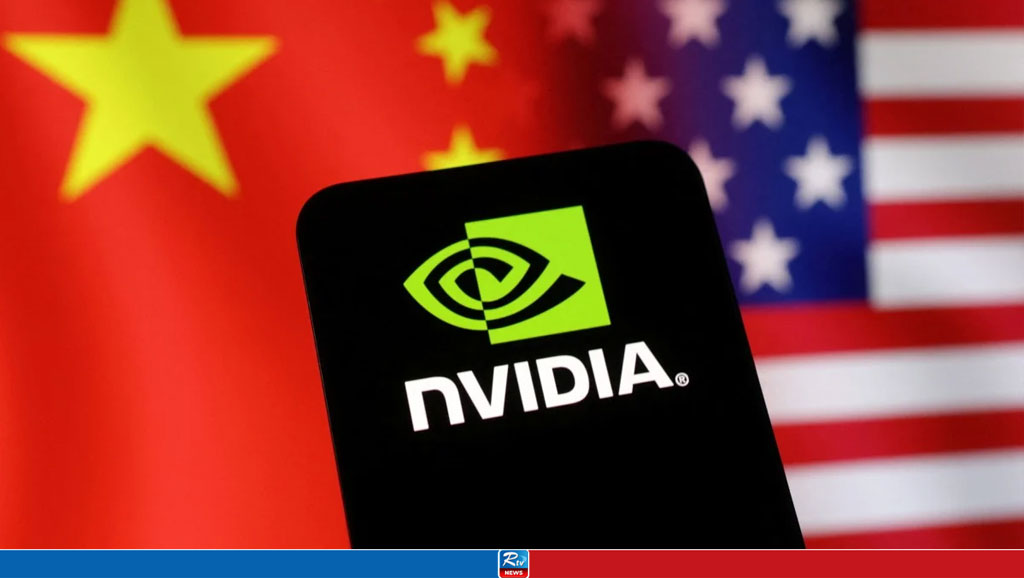To Rival China, EU Seeks to Favour European Companies for Hi-tech Contracts

Sandwiched between US President Donald Trump's ''America First'' policies and China's heavy incentives for domestic producers, the European Union wants to give its own companies preferential treatment when bidding for hi-tech contracts.
The move – to be proposed on Wednesday in a programme designed to turbo-boost the bloc's lagging competitiveness – could put it on a collision course with World Trade Organization rules, which forbid discrimination between domestic and foreign suppliers in procurement tenders.
"The commission will propose the introduction of a European preference in public procurement for critical sectors and technologies through a review of the Public Procurement Directive," reads a leaked draft of Brussels' new "competitiveness compass".
"The review aims at reinforcing technological security and domestic supply chains, as well as simplifying and modernising rules, in particular for start-ups and innovative companies," it adds.
The proposal comes just weeks after Brussels determined after an investigation that Beijing's "buy local" provisions in China's medical devices sector were illegal. Chinese firms could face exclusion from the EU's procurement markets in retaliation.
It also marks a continued drift for Europe towards policies that support local manufacturing. Through a range of tools, the EU has promoted the use of "non-price" criteria in selecting winners of procurement tenders.
One of the early sectors to actively penalise Chinese firms looking to be involved has been the EU’s nascent hydrogen energy industry. Project operators bidding for subsidies in the sector will be disqualified if more than 25 per cent of their electrolyser stacks – the machines that separate water into its hydrogen and oxygen components – are Chinese.
Explaining the decision, EU climate commissioner Wopke Hoekstra said that ''while the first auction showed that European electrolysers have a good presence, China is now oversupplying them at ever-lower costs''.
''So I will ensure that the next auction is different. We will have explicit criteria to build European electrolyser supply chains.''
''We will have explicit criteria to build European electrolyser supply chains,'' Wopke Hoekstra, European commissioner for climate, said.
''We will have explicit criteria to build European electrolyser supply chains,'' Wopke Hoekstra, European commissioner for climate, said.
On Monday, Germany's largest trade union, IG Metall, said that foreign companies should have to use components made in the EU if they want to sell their goods there.
''All industrial products marketed in Europe should be forced to have some European components,'' said Juergen Kerner, the union's deputy head.
''If Chinese or American carmakers want to sell their cars into Europe, then we need to force them to assemble products in Europe with European components,'' he added.
Analysts have long encouraged the EU to use ''buy local'' provisions to reduce its dependencies on China and to give Europe's ailing industries a shot in the arm.
''The EU could introduce buy-European provisions into existing subsidy schemes, such as subsidies to consumers to purchase electric vehicles,'' economists Sander Tordoir and Brad Setser wrote in a recent joint paper.
''China's WTO commitments have not got in the way of its use of such preferences – no imported car or battery has ever qualified for a Chinese EV subsidy. So, such a measure would be a symmetrical response to China's own de facto preferences,'' they wrote.
The moves would need to be carefully calibrated to avoid breaching the EU's commitments to World Trade Organization rules. The bloc is a signatory to the WTO's Government Procurement Agreement, which prohibits discriminating against companies based on their nationality in procurement tenders – above a certain value.
Tobias Gehrke, a geoeconomics specialist at the European Council on Foreign Relations, said the proposal would likely fall short of a direct ''buy European'' requirement.
Rather, the commission is expected to set thresholds and limits to avoid over-reliance on certain countries and ensure resilience, ''thereby giving an implicit incentive to local suppliers, without having to force a ‘buy European’ clause'', Gehrke said.
European – particularly German – companies are under huge pressure from Chinese firms in Europe, China and in third markets. With Beijing so dominant in the clean-technology sector, European governments are also keen to avoid over-dependence on China.
Last week, Friedrich Merz, the front-runner to become the next German chancellor, warned about investing in China.
''I say to all representatives of the German economy that the decision to invest in China is a decision involving great risk,'' he said.
A week earlier, French Prime Minister François Bayrou said that China's trade surplus with the rest of the world – nearly US$1 trillion – ''is a strategy that has been planned for 10 years, whose aim, consequence and purpose is purely and simply to replace our industry''.
The perceived China challenge has been compounded by high energy prices and heavy red tape in the 27-member bloc, issues the competitiveness compass sets out to address.
It proposes a bonfire of regulations and simplification of those rules that remain, which could water down some EU laws aimed at ensuring businesses operating in China operate to European labour and environmental standards.
France, for example, has proposed that the EU's new corporate sustainability due diligence directive be postponed indefinitely. The measure would force companies to conduct human rights and environmental reviews of their overseas suppliers.
European businesses have complained that the directive puts them in conflict with Beijing's vague anti-espionage laws, which scrutinise information transferred out of China deemed crucial for national security. Executives worry that sending information on corporate supply chains back to Europe could run foul of the laws.
Comments
Gold Prices Surge to Two-Week High, Reasons Revealed

Thousands Evacuate over Volcanic Eruption Fears in Ethiopia

Gifted Flat Sparks Controversy: / Tulip Siddiq Under Scrutiny Over London Property

India Strengthens Border Security, Establishes New Floating Outposts

India Faces Foreign Patient Shortage as It Limits Visas for Bangladeshis

Tibet Earthquake Kills at Least 30

Taiwan Says China Redoubling Efforts to Undermine Island with Disinformation


 Live Tv
Live Tv




